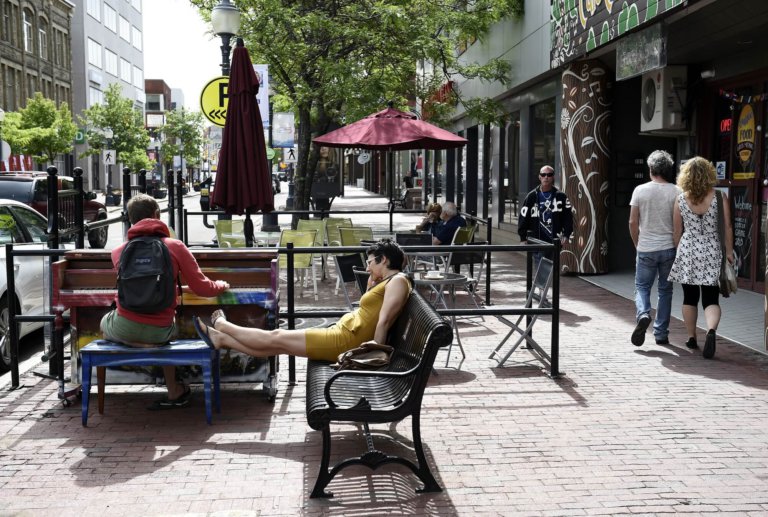
New Brunswick has announced a new immigration pilot for international students that would help them become Canadian permanent residents. Students who have graduated from four private career colleges in the province starting April 1, 2022 and who have studied in one of 19 targeted occupations, will be able to apply to the Provincial Nominee Program (PNP).
The participating institutions are Atlantic Business College, Eastern College, McKenzie College and Oulton College. In a press release, Opportunities NB (ONB) — a business development corporation — said the new pilot scheme aims to help support the province’s increasing labour needs, in collaboration with Immigration, Refugees and Citizenship Canada (IRCC).
The pilot project will only be accessible to new graduates from the designated institutions who are not currently eligible for the federal Post-Graduation Work Permit programme. This stream will limit participation to New Brunswick Designated Learning Institutions that have held this designation for at least five years and that offer eligible programmes of study in education and social development, healthcare, information technology and cybersecurity, business administration, and supply chain and logistics.

Data shows that graduates with higher salaries are also more likely to become Canadian permanent residents. Source: Oli Scarff/AFP
Other streams are available for international students graduating from publicly funded New Brunswick post-secondary institutions. Targeted occupations for this pilot include:
- social and community service workers
- early childhood educators and assistants
- educational assistants
- healthcare aides
- home support workers
- licensed practical nurses
- paramedics and related occupations
- medical laboratory technologists
- medical laboratory technicians and pathologists’ assistants
- medical administrative assistants
- computer programmers and interactive media developers
- web designers and developers
- computer network technicians
- user support technicians
- accounting technicians and bookkeepers
- payroll clerks
- shippers and receivers
- supply chain and logistics supervisors
- production logistics coordinators
Specific details will only be available in the fall. “We are excited that we can help retain more international students by opening up an innovative pathway that is made for New Brunswick,” said Arlene Dunn, minister responsible for Opportunities NB. Dunn added that the increased competition for skilled labour meant the potential to transition international students to become Canadian permanent residents is crucial.
“This initiative is something we have been working on for quite some time and we are pleased to get it across the line,” said Post-Secondary Education, Training and Labour Minister Trevor Holder. “Newcomers are key to addressing the challenges of our labour market, and by providing this additional immigration stream we are empowering more of our post-secondary institutions to develop the skilled workers that New Brunswick needs.”

Graduates with higher-level degrees and salaries have more incentive to apply for Canadian permanent residents. Source: Cole Burston/Getty Images North America/Getty Images via AFP
International students eager to become Canadian permanent residents
IRCC data shows that three in 10 international students immigrate to Canada after completing their studies — a trend that is expected to gain prominence as Canada’s international student enrolment bounces back post-pandemic. IRCC issued 519,800 more study permits in 2020 compared to 2019.
A Statistics Canada report outlined how 30% of international students who arrived in the country after 2000 became permanent residents within 10 years of receiving their first study permit. This consists of 50% of all master’s degree students and 60% of doctoral degree students, corresponding with Canada’s need for highly skilled graduates. The report also exhibited a clear incline in the number of international enrolments since 2000.
Analysis shows that most international students who immigrate to Canada come from India. Students who work in the country post-graduation (particularly on the Post-Graduate Work Permit) are 60% more likely to immigrate to Canada, especially since work experience is an important criterion of eligibility. Graduates with higher salaries are also more likely to become Canadian permanent residents.










